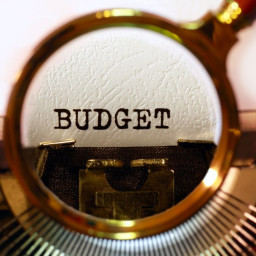
Let’s talk about retirement.
Not the “sit in a rocking chair and knit socks for the grandkids” kind (unless that’s your dream—no judgement), but the flexible, freedom-filled, work-when-you-want, travel-where-you-like kind of retirement. You know, the one where Tuesday feels suspiciously like Saturday, and nobody’s scheduling TEAMS calls at 9am.
If you’ve ever thought “I want to retire early, travel often, and maybe start a gin distillery on the coast,” this blog is for you. Here’s how to build the financial plan that gets you there—without selling your house, your kids’ inheritance, or your beloved.
Step 1: Know What "Flexible Retirement" Actually Means to You
Some people hear "retirement" and think beach. Others think boredom. Flexibility means choice—the power to:
Not the “sit in a rocking chair and knit socks for the grandkids” kind (unless that’s your dream—no judgement), but the flexible, freedom-filled, work-when-you-want, travel-where-you-like kind of retirement. You know, the one where Tuesday feels suspiciously like Saturday, and nobody’s scheduling TEAMS calls at 9am.
If you’ve ever thought “I want to retire early, travel often, and maybe start a gin distillery on the coast,” this blog is for you. Here’s how to build the financial plan that gets you there—without selling your house, your kids’ inheritance, or your beloved.
Step 1: Know What "Flexible Retirement" Actually Means to You
Some people hear "retirement" and think beach. Others think boredom. Flexibility means choice—the power to:
- Reduce work hours or change careers (think 2 days a week of work or a switch to charity work)
- Travel for a few months or lots more holidays
- Support causes, grandkids, or your secret campervan obsession
First, define what you want your life to look like. No Excel sheet required (yet). Just daydream—preferably with a glass of wine or cup of coffee and no emails.
Step 2: Get Real About the Numbers
Here’s the truth: flexibility costs money. Not “private yacht named ‘Pension Plan’” money—but a solid, thought-through plan.
Ask yourself:
- How much do I spend now (and on what—be honest)?
- How much will I need later (ideally still on wine, not on heating)?
- When do I want to start spending that money instead of earning it?
Then multiply it by “inflation,” subtract “State Pension,” and throw in a few holidays and hobbies, allow margins for the unexpected. This may sound complex and complicated, but it is our bread and butter. That’s what Haverfords is here for.
Step 3: Build the Income Buckets
Retirement flexibility works best when your money is in buckets:
- Cash Bucket – For short-term expenses (think: holiday deposits, emergency new boilers, or spontaneous winter beach trips).
- Income Bucket – Generates income from pensions, ISAs, and investments. The “pay the bills and buy the wine” bucket.
- Growth Bucket – For long-term investing, beating inflation, and maybe funding that dream of buying a small holiday place abroad.
Buckets give you choice. And buckets don’t panic in market dips. People do.
Step 4: Phase It In—Not Fall Off a Cliff
Retirement isn’t a light switch—it’s more like a dimmer. Try:
- Going part-time
- Starting that business idea you always loved
- Taking long holidays without asking a boss (glorious)
The more gradual the change, the smoother the finances. And yes—you can draw income from your pensions while still working. It’s called “flexi-access.”
Step 5: Speak to Someone Who Loves Pensions More Than is Reasonable
Let’s be honest: nobody grows up dreaming of compound interest, pension tax wrappers or the Lifetime Allowance . Except financial advisers. We live for this stuff.
A good adviser helps you:
- Create a flexible investment and income plan
- Minimise tax (legally, I promise)
- Stay on track through market chaos and government tinkering
- Learn about financial decisions that matters so that you can make good choices
Final Thoughts…
Flexible retirement is about options, not age. You don’t have to stop working, but you should have the freedom to stop if you want to.
And if you plan it right, you can do it without worrying about running out of money, about the markets or the decisions you took.
Need help designing your flexible retirement?
Let’s chat. Initial meeting is always free so you can decide if retirement planning is something you could benefit from.
Please note. The value of investments and the income from them can fall as well as rise. You may not get back the amount originally invested. Past performance is not a reliable indicator of future performance. Pensions are a long-term investment. The tax treatment of pensions depends on individual circumstances and may be subject to change in the future.
This article is for information purposes only and does not constitute financial advice. You should seek independent financial advice before making any decisions about your pension or investment options.

Mark DipPFS & BsC (Dual Honours)
Haverfords Director






